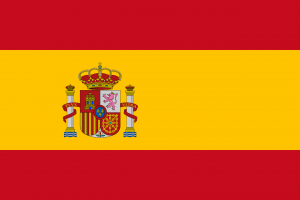Language/Spanish/Vocabulary/How-to-sound-more-natural
Hello everybody,
In this lesson, we will give you useful tips to sound more like a native in Spanish.
This means using typical expressions that are not direct translations of your native language.
If you are a native Spanish speaker, please edit this wiki page and add more expressions.
Take some time to dive into these other pages after completing this lesson: Bird, Parts of a fruit, Panamanian Slang & Conversación básica en un restaurante.
That's <adjective>[edit | edit source]
In Spanish, when we give a simple opinion it's not common to say "Eso es <adjective>" (That's <adjective>). Instead you can say "Qué <adjective>". For example:
- Qué bueno, qué bien, bien (That's good); Me parece bien (It seems good).
- Qué gracioso, qué divertido, qué chistoso (That's funny).
- Qué mal, qué malo (That's bad).
- Qué lindo, qué bonito, qué chévere (That's beautiful).
Last[edit | edit source]
In English they use "Last" (último) to refer to the time (day, month, year) just passed.
So, it's not very common to say "Fui a una fiesta el último domingo o el domingo pasado" (I went to a party last Sunday).
Instead, we just say "Fui a una fiesta el domingo" because the past of the verb ("Fui") already indicates that the Sunday is the Last one.
Next[edit | edit source]
Also, when the verb refers to the future, it's not necessary to say "Próximo" (Next) as in "El domingo iré a una fiesta" (Next Sunday, I will go to a party).
Days, months and demonyms[edit | edit source]
By the way, in Spanish, the names of the days, months and demonyms are written in lowercase letters as opposite to English where they are written in capital letters:
- lunes (Monday), martes (Tuesday).
- octubre (October), enero (January).
- inglés (English), español o castellano (Spanish).
For a <time>[edit | edit source]
When talking about periods, it's not necessary to say "Por" (for):
- Estudié inglés tres años (I studied English for three years).
- Mi hermano estará con nosotros una semana (My brother will be with us for a week).
Pronoun <verb>[edit | edit source]
Avoid the use of pronouns (Yo [I], Tú [You], Ellos [They]) followed by a verb. Spanish language have a rich conjugation which allows to indicate the subject (and number), time and mode; so it's not well to say the pronoun constantly like in "Yo estudio, yo viajé, yo jugaré" (I study, I traveled, I'll play), as it is in English where the pronoun is necessary because of the simplicity of the conjugation. Just say the verb: "Estudio, Viajé, Jugaré"; the pronoun is clear: Yo (I).
You can use the pronoun when there's ambiguity or when you want to emphasize: "Él trabajó, Ella trabajó" (He worked, she worked).
Other Lessons[edit | edit source]
- Spanish Slang
- Parts of a flower
- Guatemalan Slang
- Fungus
- Hobbies
- Animal Sounds
- Winter
- Compliments
- Food

